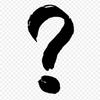Eat Right 4 Your Type
375 pages, Paperback
First published May 1,1991
This edition
- Format
-
375 pages, Paperback
- Published
-
January 1, 1998 by Century
- ISBN
-
9780712677165
- ASIN
-
071267716X
- Language
-
English
Readers also enjoyed
Community Reviews
Of course, I began by skimming through the information related to my own blood type. It felt much like reading a horoscope in a Sunday paper. There were indeed some aspects that seemed to fit, but there were also others that were completely contrary to my personal experience. I couldn't help but laugh out loud when I read that certain blood types are prone to heart disease and cancer! Oh really? Those are only the top two killers in the US. Thanks a lot for letting me know! :) The lack of actual research or study citations becomes very obvious in light of so many'scientific' assertions. Although there are numerous anecdotal case studies, it further gives the impression that this book is more about the author (and his desire to break new ground and/or recruit followers) rather than the actual content of the book.
And yet, I couldn't resist the appeal of the idea. Wishing to take my investigation a step further, I called my mom, who is the resident medical expert in our family. We discussed our family history and how it aligned with D'Adamo's theories. Our conclusions were pretty much the same as mine previously. The categories of blood type, as presented, simply failed to offer any meaningful insight into our family health history.
Finally, I read a few reviews on Goodreads and looked up the idea on the web by googling "Blood Type Diet". It appears that others had similar issues with Dr. D'Adamo's theories as I did. There is simply no research to support his ideas. In the end, the types he describes are so general that those who are willing to believe will quickly identify with his writing and ignore all that doesn't fit.
This book is not recommended at all. Well, I guess if you are studying mass hysteria, the development of cult followings, or something similar, D'Adamo's book might be of some interest to you.
An interesting approach to diet and lifestyle has been presented, yet it seems a bit too generalized to be truly effective. I initially thought this would serve as a helpful tool for me to tweak my eating habits. However, upon further reading, it comes across more like a "fad diet" book.
To be fair, there are a few effective arguments and some good advice to be found within its pages. Nevertheless, it is marred by an excessive amount of pseudo-jargon, which ultimately renders it less useful.
Overall, this book simply didn't resonate with me. It failed to provide the practical and personalized guidance that I was seeking to make meaningful changes to my diet and lifestyle. I'm left feeling disappointed and still in search of a more reliable resource.











































